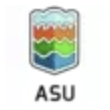Introduction
Aleksandras Stulginskis University is located in Kaunas, Lithuania. It is a higher education and research institution focusing on agriculture, forestry, environmental science and other fields. It is committed to cultivating high-quality talents in related majors and promoting scientific research and sustainable development in these fields.
Overview
Student size: Currently there are 4700-5950 students, including full-time and part-time students.
Faculty and staff: Although the specific number is not clear, the teachers have professional knowledge and rich experience in the fields of environment and life sciences, sustainable development, engineering, economics and management, and can ensure high-quality teaching.
International cooperation: As a member of the European University Association (EUA) and the Global Alliance for Higher Education and Agricultural Research (GHERA), it actively carries out international exchanges and cooperation.
History and establishment time
The university was founded in 1924 in Dotnuva, moved to Kaunas in 1964, and was renamed Lithuanian Agricultural University in 1996. In 2011, it was named Aleksandras Stulginskis University in honor of the second president of Lithuania, Aleksandras Stulginskis. Stulginskis.
School Strength
Teaching Staff: Teachers have profound professional knowledge and rich teaching experience in professional fields such as environment and life sciences, sustainable development, engineering, economics and management, and can provide students with high-quality education, teaching and scientific research guidance.
Teaching Resources: It has modern laboratories, libraries, greenhouses and experimental farms and other teaching facilities, which provide students with a good learning and practice environment, helping students to combine theoretical knowledge with practical operations and improve professional skills.
Scientific Research Achievements: It has published 1015 scientific papers and has been cited 9108 times. Its research fields cover multiple disciplines such as environmental science, biology, and engineering, reflecting its positive contribution to scientific research and a certain academic influence.
Institutional Nature
Public non-profit university.
Educational Philosophy
Focus on cultivating students' professional literacy and practical ability, emphasizing the creation and dissemination of scientific knowledge, and is committed to cultivating professional talents in the fields of sustainable utilization of natural resources for Lithuania and the world, promoting the development of agriculture, forestry, environmental science and other fields, and creating safe and healthy food and a good living environment for society.
Key Laboratories and Disciplines
Key Laboratories: It has advanced agricultural and environmental research laboratories, providing relevant fields with It provides strong support for scientific research and teaching in the field.
Key disciplines: covering agricultural engineering, agronomy, ecology, economics, forestry, biotechnology, food science and other disciplines. Among them, agriculture, forestry, environmental science and other disciplines are its traditional advantageous disciplines, with high level and influence in teaching and scientific research.
Department
The school has several departments, including the Department of Agricultural Engineering, the Department of Agronomy, the Department of Economics and Management, the Department of Forestry and Ecology, the Department of Soil and Water Management, the Institute of Environment, the Institute of Information Technology, the Institute of Rural Culture, etc. Each department has multiple professional directions, providing students with a wide range of learning and research options.
Ranking
In It ranks 201-250 in the EECA university rankings and was ranked 251-300 in the relevant rankings in 2018.
Expenses
Tuition fees: about 2,500 euros per year for undergraduate courses, about 3,500 euros per year for master's courses, and about 4,500 euros per year for doctoral courses.
Application fee: The application fee for some majors is 160 euros.
Campus
Campus facilities: The campus is located in the suburbs and has complete facilities such as libraries, student dormitories, sports facilities, and canteens, which provide students with convenient learning and living conditions, and also promote communication and interaction among students.
Campus environment: There are greenhouses and experimental farms on campus, which provide students with places for practical teaching and scientific research, allowing students to study and research in a real environment. In addition, the school also actively organizes various academic, cultural and sports activities to enrich students' extracurricular life and create an active campus cultural atmosphere.
-
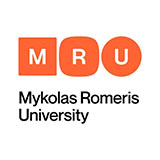
Mykolas Romeris University
-

LCC International University
-

Vytautas Magnus University
-

ISM University of Management and Economics
-
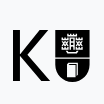
Klaipeda University
-
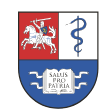
Lithuanian University of Health Sciences
-
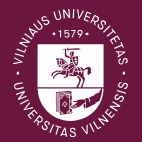
Vilnius University
-

Vilnius Gediminas Technical University
-

SMK College of Applied Sciences
-
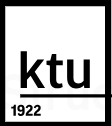
Kaunas University of Technology
-

Mesoamerican University
-

Istmo University
-

Mariano Galvez University of Guatemala
-

Regional University of Guatemala
-

Galileo University
-

Francisco Marroquín University
-

Rafael Landívar University
-

University of the Valley of Guatemala
-

University of San Carlos of Guatemala
-

Technological Institute of Tlaxcala Plateau
-

Golfo University
-

Technological University of South Sonora
-

Technological University of Huejotzingo
-

Tizimín Institute of Technology
-

Chilpancingo Institute of Technology

